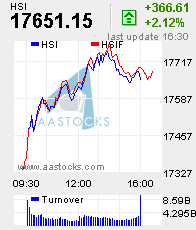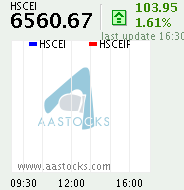Say no to "profiteering"--- A new name of "sukuk" for "bonds"?
 I want to echo the idea put forward by the Chief Executive Donald Tsang of developing an Islamic Bond Market in Hong Kong as mentioned in his 2007-08 Policy Address this morning.
I want to echo the idea put forward by the Chief Executive Donald Tsang of developing an Islamic Bond Market in Hong Kong as mentioned in his 2007-08 Policy Address this morning.We're told that "Islamic finance offers huge potential for development and to further consolidate Hong Kong's position as a global financial centre. The Hong Kong Monetary Authority has set up a team to study related issues and make recommendations for the early introduction of Islamic debt offerings in Hong Kong."
According to the fundamental doctrine of the Islamic (Shari'a) law, profits and interests that generated from the assets are prohibited. That is the interest-bearing bonds are not allowed to be bought and sold in Islam.
The term "sukuk" is the Arabic name for a financial certificate but can be seen as an Islamic equivalent of bond. They are monetary denominated participation certificates of equal unit value to be issued to investors to represent their proportionate share in the ownership of the underlying assets and a pro rata share in the income generated by those assets. Sukuk are securities that comply with the Islamic rule.
Those sukuk(securities) often take the form of shares or bonds issued by a limited liability company to which certain rights in assets have been transferred. Empirical evidence shows that sukuk were a product extensively used during medieval Islam for the transferring of financial obligations originated from trade and other commercial activities. It was done in conformity with the Shariah(回教律法).
There are two main kinds of Sukuk (financial obligations, bonds)--- Ijarah Sukuk & Musharaka Sukuk :
--- Ijarah Sukuk are issued by a lessor and backed primarily by a lease stream from a credit lessee. As Shari'ah (Islamic law) frowns on the payment of interest, Ijarah Sukuk transactions work by passing a lease stream through to the holder of the Ijarah Sukuk, rather than being structured as an interest bearing loan secured by a pledge of assets.
--- Musharaka Sukuk represent a fractional ownership in the capital a private commercial enterprise or project. Sukuk holders are entitled to a proportionate share of the profits or returns of the enterprise(bond issuer) and assume a proportionate share of the losses.
From the modern Islamic point of view, The essence of sukuk lies in the concept of monetization of assets or securities through the "process of issuance of sukuk" (taskeek). Its great potential is its ability in discounting an asset's future cash flow into present monetary value. The sukuk certificate holders can earn a pro rata share in the receivables generated by the assets and in any extra value appreciation that is realised once they are sold in the market.
However, I think it is nothing more than the unique concept of "interest" just put simple and straight forward by the last century 30's great economist, Irving Fisher. I wonder whether it's merely just a new name of "sukuk" substitutable for "bonds" or just the reverse but doing the same "sacred" thing (or "dirty" act?). It is because they are actually the same thing and same "concept" in terms of modern economics even though some Islams disagree. Pardon me if my words are found to be offensive to those Islamic fundamentalists.
Try to remember that .....

Fisherian Concept of Capital & Interest:Irving Fisher (1867-1947) Asserted His Remarkable Theory of Interest That.....
Interest as the price of earlier availability;
Interest as the same as premium paid for stream of service over time periodically;
Interest as the income for the growth of a good;
Interest is the yield from the net productivity of investment: that is the increase in income created by investment today (e.g. invest in infra-structure) to transform some resources into a more highly valued form for later use;
Thus, Interest is a stream of receipts (income or services) available at different periods of time. It is a flow concept.

Also written in Chinese by tcwong at











0 Comments:
發佈留言
<< Home